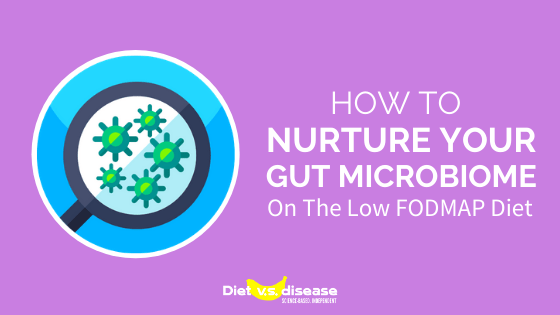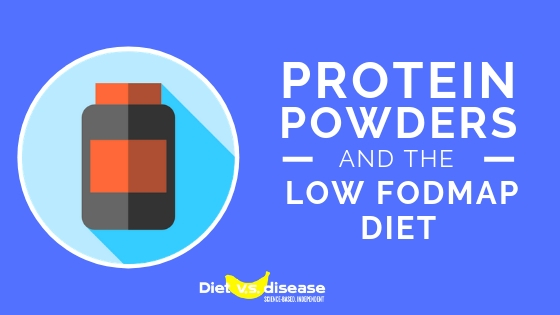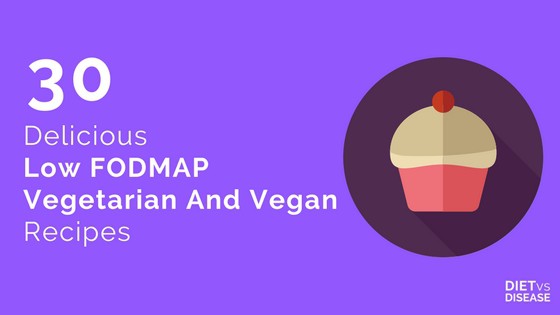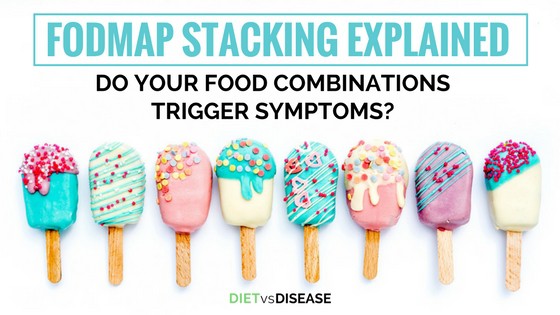What is a Low FODMAP Diet?
Put simply, FODMAPs refers to certain sugars known to trigger digestive problems.
The acronym stands for:
- Fermentable – meaning they are broken down (fermented) by bacteria in the large bowel
- Oligosaccharides – “oligo” means “few” and “saccharide” means sugar. These molecules are made up of individual sugars joined together in a chain
- Disaccharides – “di” means two. This is a double sugar molecule
- Monosaccharides – “mono” means single. This is a single sugar molecule
- And Polyols – these are sugar alcohols (however, they don’t lead to intoxication!)
A low FODMAP diet, or FODMAP elimination diet, refers to a temporary eating pattern that has a very low amount of these sugar compounds. The aim of this diet is to eliminate digestive symptoms by eliminating all FODMAPs, then reintroducing them gradually to see what’s triggering the symptoms.
This diet can be beneficial for managing symptoms for people who have gastrointestinal disorders such as:
- Irritable bowel syndrome (IBS)
- Functional Gastrointestinal Disorder (FGID)
- Small intestinal bacterial overgrowth (SIBO)
- Certain auto-immune conditions
- Inflammatory bowel disease (IBD)
- Other health issues triggered by certain foods.
Low FODMAP diet is a first-line treatment
Research in this area still has a way to go, but scientific consensus is that a low FODMAP diet should be the first dietary approach for treatment of recurrent gastrointestinal issues.
Most of the research has been on patients with IBS, which is a chronic gastrointestinal disorder characterized by abdominal pain and altered bowel habits. Around two thirds of IBS patients report their symptoms are related to food.
In one landmark study, almost 9 out of every 10 people on the FODMAP diet had huge improvements in bloating, stomach pain, flatulence and their overall symptoms. Another high quality study found IBS symptoms were reduced by 50% overall on the low FODMAP diet, with the greatest improvements observed one week after implementing the diet (1, 2).
Would you like more information on how to start a low FODMAP diet?
Tap the blue button below to download our “Eat This, Not That” list as well as additional resources for IBS and digestive issues (it’s free!)
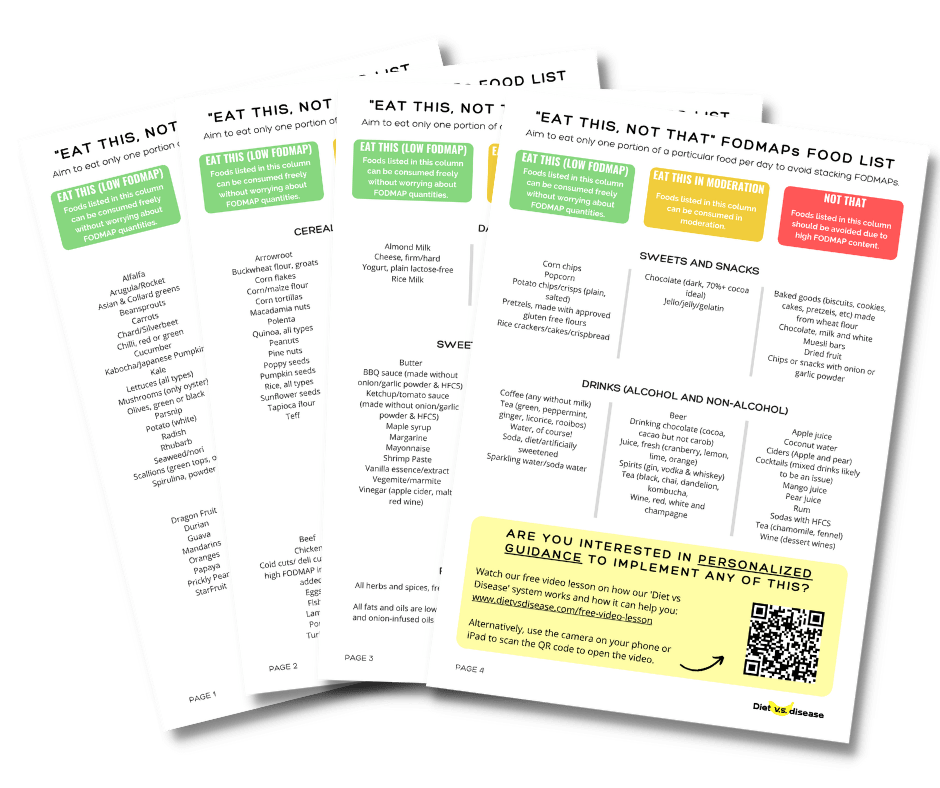
All articles about FODMAP Diet
How To Nurture Your Gut Microbiome On The Low FODMAP Diet
Many are interested in how to nourish the gut microbiome, particularly if you’re on a low FODMAP diet.
Several foods which are important for maintaining a healthy microbiome are restricted on this diet.
In this article, we will look at how you can optimize your gut microbiome and still adhere to the low FODMAP diet.
[Discover More…]Low FODMAP Food List: What Can You Eat on a Low FODMAP Diet?
If you’ve been advised to follow a FODMAP elimination diet, a low FODMAP food list can make your life much easier.
Below, we’ve organized a comprehensive list of both foods to enjoy and foods to avoid when following a low FODMAP diet.
[Discover More…]Can You Have Protein Powder On The Low FODMAP Diet? This Is What You Need To Look For
Many people use protein powders for a variety of reasons, such as weight management or to help meet their protein requirements.
It is not necessary to use a protein powder on the low FODMAP diet, however if you choose to use one, then this article will help you to find one that is safe.
[Discover More…]25 Tasty Low FODMAP Lunch Recipes For IBS
[Last updated 7th March, 2023]
Are you stuck for low FODMAP lunch ideas?
We’ve rounded up 25 tasty low FODMAP lunch recipes that will help keep you on track.
Click the recipe title for the full recipe ingredients and cooking method.
[Discover More…]30 Delicious Low FODMAP Vegetarian And Vegan Recipes Plus Some FAQ
[Last updated 10th April, 2020]
Following an elimination diet is hard.
But doing so as a vegetarian or vegan is even harder.
The good news is that you can definitely follow the low FODMAP diet if you don’t eat animal products.
Here’s a round-up of 30 low FODMAP vegetarian and vegan recipes to help you plan your low FODMAP meals.
[Discover More…]30 Delicious Low FODMAP Dinner Recipes: Don’t Get Stuck Eating The Same Thing!
[Last updated 7th March, 2023]
Looking for some delicious low FODMAP dinner ideas?
We’ve rounded up 30 tasty low FODMAP dinner recipes to keep your tummy settled and your taste buds happy.
Recipes are categorized under chicken, beef, lamb, pork, fish and seafood, and vegetarian recipes.
Click the recipe picture or name for the full recipe ingredients and method.
[Discover More…]77 Easy and Tasty Low FODMAP Snacks: You Don’t Have To Miss Out
[Last updated 7th March, 2023]
Different occasions call for different snacks.
However, on a low FODMAP diet it can be very tricky to know what’s a safe option… Fear not!
I’ve compiled a giant list of 77 easy low FODMAP snacks divided into different categories, so you don’t have to miss out.
This list includes naturally low FODMAP foods, certified low FODMAP snack products and snack recipes for any occasion.
[Discover More…]25 Scrumptious Low FODMAP Breakfast Recipes To Start Your Day
[Last updated 7th March, 2023]
Have you been diagnosed with irritable bowel syndrome (IBS) and need to follow a low FODMAP diet?
Are you lacking ideas on what to eat for breakfast?
We’ve rounded up 25 scrumptious low FODMAP breakfast recipes to help start your day on the right foot.
Click the breakfast recipe photo or name below for the full instructions and more photos.
[Discover More…]How To Use The Monash University FODMAP Diet App: A Step-By-Step Tutorial
FODMAPs and the low FODMAP diet was discovered by researchers at Monash University. Monash have since released a FODMAPs phone app, which many now consider an essential resource. It contains the most comprehensive database of FODMAP-tested foods available (known as the Food Guide), as well as low FODMAP recipes, certified foods and other features. This article walks you through how to use the Food Guide in the Monash University FODMAP Diet app. We’ve also highlighted some buggy features you need to be aware of. Before You Start – Download The Monash App Unfortunately, we cannot display screen shots demonstrating how to use the Monash app due to copyright, so if you haven’t done so already, you will need to purchase download the app before continuing so you can follow along. You can purchase the app and download it by clicking[Discover More…]
FODMAP Stacking Explained: Do Your Food Combinations Trigger Symptoms?
[Last updated 1st July, 2019]
Have you been on a strict low FODMAP diet yet experienced minimal improvement in symptoms?
This is not an uncommon scenario, especially if your digestive system is super-sensitive.
It’s possible that FODMAP stacking is the culprit.
This article runs through what FODMAP stacking is and how to ensure your meals don’t combine too many FODMAPs at once.
[Discover More…]Low FODMAP Fruits: A List of What You Can and Cannot Eat (+ Printable PDF Chart)
[Last updated 7th September, 2023]
Some fruit are off limits on the low FODMAP diet.
Fortunately, there are still many different types that are safe to enjoy.
Here’s a list of low FODMAP fruits to eat and high FODMAP fruits to avoid.
[Discover More…]Low FODMAP Vegetables: A Complete List of What You Can and Cannot Eat (+ Printable PDF Chart)
[Last updated 7th March, 2023]
Have you been searching for a list of safe vegetables you can have on the low FODMAP diet?
Here’s a list of low FODMAP vegetables to eat and high FODMAP vegetables to avoid.
[Discover More…]


